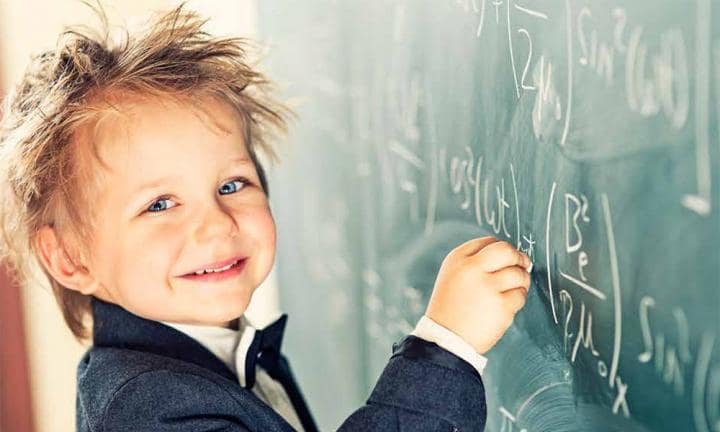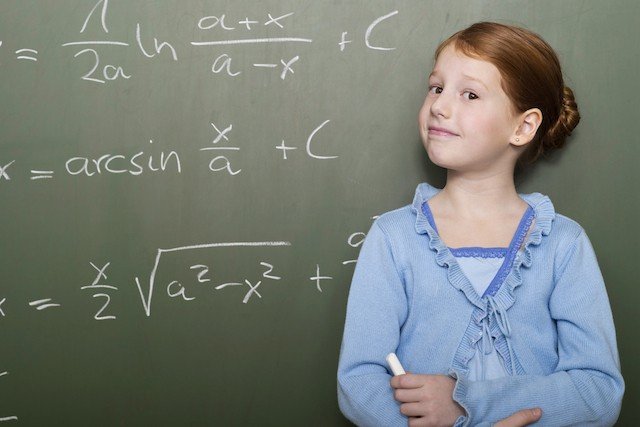 It is so unfortunate that there is a misconception between “Disabled Children” and “Gifted Children” particularly in Nigeria and Africa in general. Education as a key factor for sustainable development and it is increasing because of progressing pressure to catch up with the developed world regarding, for example, global competitiveness (Hawkins, 2002).
It is so unfortunate that there is a misconception between “Disabled Children” and “Gifted Children” particularly in Nigeria and Africa in general. Education as a key factor for sustainable development and it is increasing because of progressing pressure to catch up with the developed world regarding, for example, global competitiveness (Hawkins, 2002).
Gifted Children as the case may be, approximate to the discovery of intelligence, smartness, creative ideas, brilliance, exponential wisdom beyond their scope of learning and simulations. More so, a gifted is a child or who performs at or shows the potential for performing at a remarkably high level of accomplishment when compared to others of the same age, experience, or environment, and who exhibits high performance capability in an intellectual, creative, or artistic area and possesses an unusual capacity for leadership or excels in a specific academic field. The identification of these gifts and the disclosure of their capabilities at a tender age acknowledges the incredible work of the Supreme-Being. Obviously, there have been different definition of a gifted child varying with different cultures and different categories from different authors and writers. So therefore, there is no generally agreed definition of giftedness for either children or adults. Giftedness is frequently not evenly distributed throughout all intellectual spheres. One gifted student may excel in solving logic problems yet be a poor speller. Another may be able to read and write at a far above-average level yet have trouble with Mathematics. Generally, giftedness in the African contemporary balls down to the ability of a child significantly higher than average.
EDUCATING THE GIFTED CHILD IN NIGERIA
The classroom teacher needs information on how to cater for their educational needs. In response to the question of how the gifted should be educated, below are some of the reasons for encouraging special classroom activity for the gifted:
a) Preventing retrogression in the children.
b) Motivating the children to keep their ability high.
c) Encouraging children to progress at their own rate.
d) Avoiding inattentiveness through boredom.
Even though few subjects were opposed to special classroom activity for the gifted child, those who were, gave more reasons for this opposition by comparison with the subjects who favored special classroom activities. Some of the major reasons included:
a) The gifted children in a class are usually too few in number to be considered separately
b) If separated, gifted children cannot share their knowledge with others.
c) Isolation stifles competition with others.
d) Special attention to the gifted child may lead to poor self-concept in other Children not enjoying the same privilege.
e) Preferential treatment may lead to conceit in the gifted child. However, some of these potential problems can be handled by counselling. In addition to separate classes for the gifted, other approaches may include:
- Non graded schools: Grade levels, restrictive courses of study and text books are eliminated, and the pupils are afforded the opportunity of moving ahead according to their capabilities and personalities.
- Special grouping: According to the interests displayed by children.
- Team teaching: To encourage specialization on the part of both teacher and student.
- Programmed instruction: The use of instructional technology to assist learning.
- Acceleration: Making the pupil move along quickly in a regular classroom or by encouraging "skipping".
In response to a question about the availability of school activities to meet the needs of the gifted child, approximately 63.1 o/o of the subjects were not satisfied with the activities available in the school system. Some of the major factors identified as contributing to inadequacy of provision for the gifted child are:
a) Poor school environment.
b) Financial constraints in the schools, which limit the teaching materials that can be provided;
c) Inadequate library facilities.
d) Poor attitude of teachers to the exceptionally gifted child.
e) Overcrowding in schools.
f) Inability of the classroom teacher to deal with the gifted child.
HOW EDUCATION IN NIGERIA MEASURES GIFTEDNESS.
Apparently 80% of the schools and colleges in Nigeria measures Giftedness by an IQ test score. Until the late 1960s, when “giftedness” was defined by an IQ score, a school district simply set an arbitrary score (usually in the 130 range) and a student either did or did not “make the cut”. It is no longer accepted today in academic circles; however, it's still used by many school districts because it is simple and not entirely without merit. Although a high IQ score is not the sole indicator of giftedness, usually if a student has a very high IQ, which is a significant indicator of high academic potential. Because of this consideration, if a student scores highly on an IQ test, but performs at an average or below average level academically, school officials may think that this issue warrants further investigation as an example of underachievement.
Therefore, education measures giftedness formally and informally. Formally approaches include the IQ tests which measures the thinking process such as:
• Logical reasoning
• Language comprehension and expression
• Understanding of concepts
• Levels of general knowledge.
The informal approaches used in Nigeria education involve across a whole group of children as a basic screening tool, or with individual children where gift or talent is suspected and this include:
• Anecdotes and narratives
• Learning stories
• Portfolios
• Information from children and their families
• Information from other professionals
Using this approach, you can build a profile of the child to support identification by recording and documenting children's development over time. This information can also be used by other professionals involved in the care of the child.

BIOLOGICAL DIFFERENCE THAT DISTINGUISHES A GIFTED CHILD FROM A TYPICAL CHILD.
There is a biological difference between the gifted child and the typical child. The gifted child seems to have an increased cell production that also increases synaptic activity. This all adds up to an increased thought process. The neurons in the brain of the gifted child seem to be bio-chemically more abundant and, as a result, the brain patterns that develop are able to process more complex thought. There seems to be more prefrontal cortex activity in the brain, which leads to insightful and intuitive thinking. Gifted children have more alpha wave activity in the brain. They not only get more alpha wave activity faster than the typical child, but they also sustain it longer. This allows for more relaxed and focused learning with greater retention and integration. The brain rhythms of the gifted child occur more often, and this allows for concentration, attention, investigation, and inquiry.
RECOGNIZING A GIFTED CHILD
Giftedness follows a child into adulthood and every individual with giftedness is unique. While no two students will excel in exactly the same way, there are some traits and behaviors parents and teachers commonly observe when a child is gifted:
They are curious and ask a lot of questions.
Gifted kids are often curious about the world around them and may ask detailed questions to satisfy their thirst for knowledge. This curiosity goes beyond simple interest in a topic and can extend to aspects that are seemingly outside of the scope of a lesson. In a school setting, the child may not be satisfied with only learning what is necessary in order to do well on an exam or complete an assignment. At home, there may not always be time or the background knowledge required to provide answers. While this can be frustrating for teachers, parents and children alike, it’s important to avoid discouraging a child from asking questions as this can be de-motivating and shut-down future communication attempts.

They take their own approach to assignments.
Whereas bright students look to please the teacher and finish assignments, gifted children often have their own way of going about things. This can be due to a desire to focus on only one aspect of a topic or a perceived lack of challenge in the task itself. For example, in a school essay they may only partially answer the question or go off on a tangent. In a Math setting a child may take an alternative route to problem solving than that which was required by the question. In both situations it’s important for teachers to be tolerant and avoid reprimanding or penalizing the child for not following directions. This can damage morale and self-esteem and result in less effort being put into future assignments. Teachers may also notice that gifted children prefer to work alone and can easily get lost in their thoughts.They have a large vocabulary and prefer adult conversation.
One of the first things people notice about gifted children is their vocabulary. They often understand and use more words than their peers, including abstract and figurative language. This may be due to their reading habits and exposure to more advanced texts. It can also be thanks to a heightened sensitivity to syntax and an ability to guess at the meaning of new words encountered in context. It’s also easier for these kids to remember words, as they require less repetition in order to acquire language. As a result, they may feel more at ease communicating with adults due to their advanced language skills. Nonetheless, it is still important to encourage a child to engage with his or her peers to prevent them from becoming isolated and withdrawing due to perceived differences in intellectual ability.They have original ideas.
A child with giftedness is an original thinker and able to access abstract reasoning and bring together ideas from different areas. They may have a wild imagination and develop their own sophisticated stories, songs and/or plays. These examples of creative work can contain complex language and show an advanced appreciation for humor.They are cognitively advanced and able to self-teach new skills.
Children who are gifted may teach themselves how to read and write before they learn in school. They often have advanced cognitive reasoning skills and a good memory. Some estimates suggest that an average student needs to hear something repeated 8-15 times in order to acquire it, whereas a gifted child may only need to encounter a word, fact or idea 1-2 times. In Math class these kids may use logic and reasoning to solve problems before they have been introduced to the target concept. They learn quickly and do not require as much practice as other children to develop new skills. They may easily become bored when a lesson is repetitive and this can lead to them tuning out. Children with giftedness can often benefit from a condensed curriculum that covers more material in less time.They are sensitive to their environment.
From a young age the gifted child is very alert and tuned into his or her environment. Some have acute concentration skills and can easily become hyper-focused on a task. It is through engaging with new stimuli that they are able to develop cognitively. That’s why it is important to ensure gifted children receive adequate stimulation, particularly in school settings that offers plenty of room for advancement.They have strong feelings.
These children may be quite opinionated and have strong feelings about topics that are important to them. They can also be more aware of the opinions and feelings of other people. However, this does not necessarily translate into knowing how to deal with this information through appropriate social channels. They may be quite emotional. Because some gifted kids are extremely self-aware, it can cause them to become introvert and feel that they don’t fit in. This is one reason why parents may choose to move a child into a gifted program where they will have other intellectually advanced kids as peers.

COMMON CHARACTERISTICS OF A GIFTED CHILD
Because gifted children are so diverse, not all exhibit all characteristics all of the time. However, there are some common characteristics that many gifted individuals share and this may include:
• Self-disciplined, independent, and often anti-authoritarian.
• Zany sense of humor.
• Able to resist group pressure, a strategy that is developed early.
• More adaptable and more adventurous.
• Greater tolerance for ambiguity and discomfort.
• Little tolerance for boredom.
• Preference for complexity, asymmetry, open-endedness.
• High in memory, good attention to detail.
• Broad knowledge background.
• Need supportive climate, sensitive to environment.
• Need recognition, opportunity to share.
• High aesthetic values, good aesthetic judgment.
• Freer in developing sex role integration; lack of stereotypical male/female identification.
• Unusual alertness, even in infancy.
• Rapid learner; puts thoughts together quickly.
• Unusually large vocabulary and complex sentence structure for age.
• Advanced comprehension of word nuances, metaphors and abstract ideas.
• Enjoys solving problems, especially with numbers and puzzles.
• Often self-taught reading and writing skills as preschooler.
• Deep, intense feelings and reactions.
• Highly sensitive and emotions.
• Thinking is abstract, complex, logical, and insightful.
• Idealism and sense of justice at early age.
• Concern with social and political issues and injustices.
• Longer attention span and intense concentration.
• Preoccupied with own thoughts—daydreamer.
• Learn basic skills quickly and with little practice.
• Asks probing questions.
• Wide range of interests (or extreme focus in one area).
• Highly developed curiosity.
• Interest in experimenting and doing things differently.
• Puts idea or things together that are not typical.
• Desire to organize people/things through games or complex schemas.
• Vivid imaginations (and imaginary playmates when in preschool).
DIFFERENCES BETWEEN THE SEXES
However, studies have shown that the characteristics of the gifted child can differ on the basis of sex.
The following are common characteristics of the Female Gifted child:
• She likes school, especially courses in science, music, and art.
• She likes her teachers.
• She regularly reads news, magazines, another non-required reading.
• She is active in drama and musical productions.
• She does not go out on dates as often.
• She is a daydreamer.
The following are common characteristics of the Male Gifted child:
• He dislikes school.
• He dislikes teachers and thinks they are uninteresting.
• He does little homework.
• He dislikes physical education and seldom engages in team sports.
• He is regarded as radical or unconventional.
• He often wants to be a lone to pursue his own thoughts and interests.
In conclusion, Gifted Education in Nigeria should be embraced, encouraged recognized and firmly supported by the Government, Family, Teachers, Stakeholders and other beneficiaries because children holds the future of the country.
REFERENCES
74th legislature of the State of Texas, Chapter 29, Subchapter D, Section 29.121
Abrahams, W. counselling the gifted. Focus on Guidance, 9. September 1976.
Webb, J., Gore, J., Amend, E., DeVries, A. (2007). A parent's guide to gifted children. Tuscon, AZ: Great Potential Press, www.greatpotentialpress.com.
http://www.education.vic.gov.au/childhood/professionals/learning/Pages/idgiftedchildren.aspx Accessed on the 16th April, 2018.
http://www.readandspell.com/us/signs-of-a-gifted-child Accessed on the 16th April, 2018.
https://www.encyclopedia.com/reference/encyclopedias-almanacs-transcripts-and-maps/gifted-and-talented-children Accessed on the 16th April, 2018.
https://www.huffingtonpost.com/dr-gail-gross/who-is-the-gifted-child_b_4119720.html Accessed on the 16th April, 2018.
https://www.nagc.org/resources-publications/resources/my-child-gifted/common-characteristics-gifted-individuals Accessed on the 16th April, 2018.
https://www.verywellfamily.com/what-is-a-gifted-child-1449130 Accessed on the 16th April, 2018.
Congratulations @joshuauwagboi! You received a personal award!
Click here to view your Board
Do not miss the last post from @steemitboard:
Vote for @Steemitboard as a witness and get one more award and increased upvotes!
Congratulations @joshuauwagboi! You received a personal award!
You can view your badges on your Steem Board and compare to others on the Steem Ranking
Do not miss the last post from @steemitboard:
Vote for @Steemitboard as a witness to get one more award and increased upvotes!